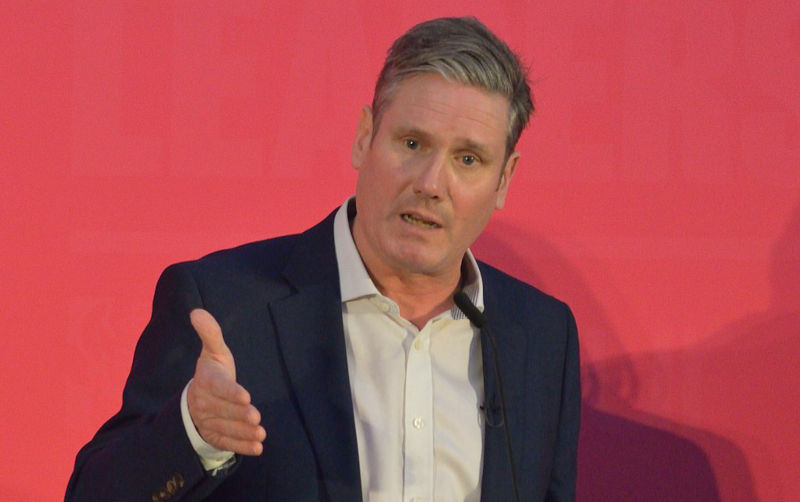Lessons for UK Labour from Australia
February 2, 2023
Anthony Albaneses electoral success and the quiet competence of Labors administration has not gone unnoticed by the commentariat and political analysts here in the UK. A sea change from the noisy and brash Morrison days.
UK Labour Party leader, Keir Starmer, is playing much the same game as Albanese did in the lead up to the 2022 election. He is projecting competence and making himself as small a target as possible, promoting just a few policies and making very few public statements of intent. As in Australia, this approach has frustrated some Labour supporters, but Starmer faces a massively biased broadcast and press media as Albanese did with the Murdoch press and he is playing safe.
After 12 years of neo-liberal austerity policies, what has the UK got to show? It lies at the bottom of the G20 in terms of growth; a massive cost of living crisis; huge inequalities in wages and wealth between regions and between generations; a hollowed out public sector; rolling strikes by public sector workers seeking wage settlements to match an inflation rate of more than 10%. All this has been overseen by a cabinet which still thinks governing by picking fights is a good way forward, where failures are down to policies not being extreme enough and we the public are just lazy slackers, a reprise of the Australian version of leaners and lifters. This is not playing well with the public and there is good evidence for that.
Indicators are that this UK political environment may be coming to an end. Labour has a 20+ point lead in all opinion polls, and the number of Tory MPs jumping ship and not standing at the next election, perhaps hoping to get a head of the curve in the shrinking job market for ex-Tory MPs!
Ministers have to confront that they have no one else to blame, they own this and they know it. Cabinet ministers are reluctant to accept invitations to be interviewed because they know they will get roasted and toasted. In broader terms, they have lost the narrative especially in two key respects.
The first, is the claim that public sector strikers are holding the country to ransom isnt resonating with the voters because the private sector has settled claims at about the rate of inflation. There is widespread acknowledgment that public sector workers ARE underpaid. Heres the scenario: minister goes on talk show, claims nurses are well paid, on comes grieving mother relating how nurses held their dying childs hand all night in the COVID crisis. Game over.
The second relates to the neo-liberal economic model. If it has been a success, how come we all feel poorer? The answer is that we are! The UK is still a major economy and in terms of per capita GDP things look grand, except they are not. The overall figure belies how per capita GDP is distributed - it is top heavy. By comparison with other similar countries, including Australia, middle and low income households are GBP8000 worse off than their counterparts.
Feeling poor also relates to the badly underfunded public sector institutions. Efficiency savings essentially means that everything is running hot all the time, so any small setback generates a crisis, because there is so little resilience in the economy. The case for decent social democratic reforms is now getting the attention it deserves, a big challenge to the neo-liberal policies of the Conservative governments.
What now for Labour? There are three positives. First is Labours proposed Green Deal offering new jobs and a plan to address climate change issues, appealing to many non-traditional Labour voters. The older generation, many of whom traditionally vote Tory, express concern about the grandchildren and their futures unless more concerted action is taken to address climate change. Second, is Labours willingness to borrow to invest in infrastructure projects, while decentralising decision-making on who gets what. Third, the intention to ditch the House of Lords, so lacking in legitimacy, that its demise may herald other broader and much needed constitutional reform.
However, Labour is all at sea on Brexit and immigration. The ultra-nationalist right are still setting the agenda and are difficult to shift. In government, Labour may be able to educate and effect change but it also needs to read the Australian election in a more detailed way. There are UK equivalents of the Teals located both in the Liberal Democrats and the Greens, potential allies in Labours pursuit of both the Green Deal and for more democratic social reforms. Developing close policy links with these allies may well require a more formal alliance with the Liberal Democrats. While a formal coalition is unlikely at this stage, Labour may well find itself relying on them to form a government.
There is long way to go. Albanese and his colleagues give hope to UK Labour. Even modest reforms are first steps away from the noise, chaos and cruelty of the existing neo-liberalism policies and practices. For now, many on the left would settle for that.
